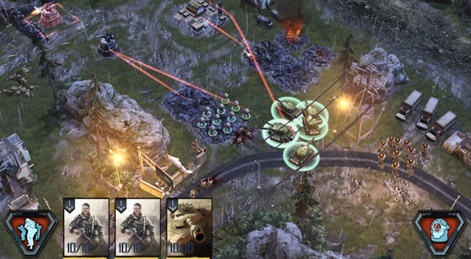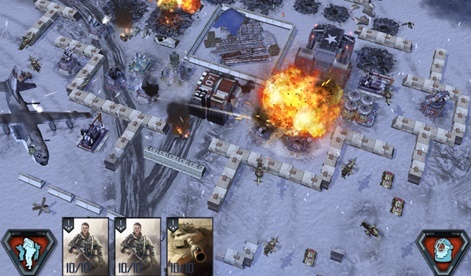The last time San Francisco-based free-to-play games developer Kixeye raised a round of external investment was six years ago, when it pulled in $22 million.
The company’s portfolio includes browser and mobile titles such as War Commander: Rogue Assault, Vega Conflict and Battle Pirates.
The games have been enough to build what it calls a successful business and one where it hasn’t had to quickly return to the well of its backers to continue its growth.
But in March 2018 the company closed a $20 million investment round, led by Icon Ventures and also including Ridge Ventures, Trinity Ventures, and Lightspeed Venture Partners. The latter company’s MD Jeremy Liew has returned to Kixeye’s board of directors.
And while games remain the company’s core business, for which some of that investment will cover development, much of the funding is being pumped into its new machine learning platform.
Artificial intelligence
It's a new field of computer science that you’ve probably heard a lot about and it’s a term increasingly uttered in gaming circles. The idea is for computers to learn through data and then make decisions independently (within designated parameters) without the intervention of a programmer.
Kixeye aims to use the AI tech, which has been in development for the last 16 months, to optimise the marketing, monetisation and retention of its games - starting with War Commander: Rogue Assault.

The platform works by powering a dynamic in-game marketplace that adapts itself to player behaviour, offering up special offers tailored for specific users.
I'm excited that there's something that we're doing now that is financially beneficial to the company that is also a better player experience.John Getze
“The really interesting thing about video games is that they're closed economies, so it's more lucrative for the company and it's a better player experience for the players to not surface offers to them that are not something they'd be interested in,” Kixeye CMO John Getze tells PocketGamer.biz during GDC.
“...If you go on Amazon, they show you your purchase and browsing history, but the thing I always found frustrating was they never know what I've already bought independent of that. I'm like, no, I don't want to buy that first Wu-Tang album, I already own that.
“The great thing about the game is we know what you've bought, what units you've played against, what you currently own, so it gives us the ability to give one-to-one offers that are targeted to every player.”
Dynamic storefront
Kixeye’s plans sound a lot like dynamic pricing, but Getze claims that’s not the case, and what it’s in fact offering is “dynamic content”.
He explains that the price for in-game currency is the same for everybody, and that the platform pulls data from how someone is playing the game and what units they are using when delivering offers, rather than being based on how much they spend.
Through machine learning creating these offers, Kixeye has already seen monetisation and retention rates for its latest mobile game War Commander: Rogue Assault double that of its previous titles.
“There's obviously tonnes of great games out there and tonnes of movies vying for people's attention, so part of the mission first and foremost is to make the game fun and engaging,” says Getze.
“I'm excited that there's something that we're doing now that is financially beneficial to the company that is also a better player experience. It's rare to have a win-win in business.”

With regards to other benefits of machine learning and AI in games, Getze describes one of the algorithms the company uses dubbed ‘Random Forest’, which he says works like a child’s mind - if it could analyse a myriad of possibilities.
“As we grow up as adults we have different experiences in life that help form our decision-making and as part of that process we close ourselves off to different outcomes,” says Getze.
“The interesting thing about this is that it basically produces every possible outcome and goes through them systematically, and weights them and evaluates them. To think about it conceptually is completely cool. You're just incapable of doing it as a human, right?
“We all have bias, we all have preconceived notions about how things should work and it's really tough to be completely indiscriminate when you're evaluating a solution to a problem. So I think that's why it's really a fascinating thing that's happening.”
Get the latest news, interviews and in-depth analysis on Twitter, Facebook and our daily newsletter.





















